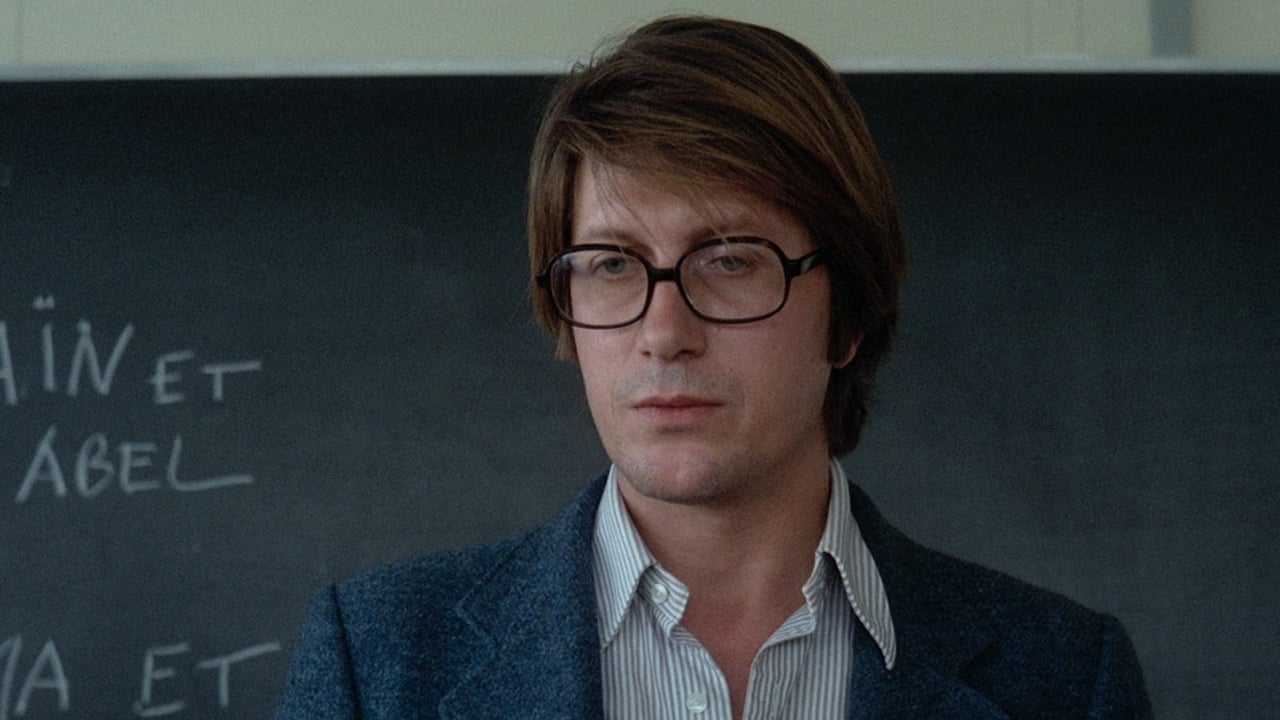Hellen
I like the storyline of this show,it attract me so much
Voxitype
Good films always raise compelling questions, whether the format is fiction or documentary fact.
Kodie Bird
True to its essence, the characters remain on the same line and manage to entertain the viewer, each highlighting their own distinctive qualities or touches.
Billy Ollie
Through painfully honest and emotional moments, the movie becomes irresistibly relatable
zimmyfan66
Godard is fearless. Of that there is no doubt, and if that were enough to warrant him as a master of filmmaking, then countless filmmakers would be labeled masters for making films not for the audience but for themselves. Every director, to an extent, is making the film for themselves. But in the process of making it for themselves, they come into contact with and then disseminate elements that later speak to someone who might be watching the film. With the majority of Godard's films, it feels as though he is laughing at an in-joke or propagating an anti-societal agenda with elements only he is capable of deciphering. The result, at least for me, is almost always a drunken flurry of images, incongruous sounds, and inexplicable character actions that show me method in madness but distance me from feeling the madness in the method. "Every Man for Himself" is a perfect example of this. It jumps around and gets inside (as all Godard films do) a number of different characters, many of whom have nothing to do with anything other than perhaps preach a shocking aphorism here or there. The film starts with a woman, shows her in various countryside locations riding her bike and standing with wind in her hair. These are not actors but models, and NOT in the Bressonian sense. Bresson used his actors as models, true, but he still somehow was masterful at imbuing them with a sense of purpose (even if the purpose is dealing with purposelessness) and a sense of orientation. Godard fails at this, and perhaps because he WANTS to fail. It's clear watching any of his films that he is a man who cringes at the slightest hint that his art might be compared to another's or that an audience member dares "understand" his film. I understand this impulse, but not Godard's execution of it, with the exception of his work on everything before and including Pierrot le fou. In those films, Godard reached us with his passion for cinema (particularly American films) and his daring vision of contemporary life at odds with itself. It just seems, at a certain point, that Godard's filmmaking offers us little pieces of insight, little moments of cinematic ingenuity that do nothing to enhance the raw impact of his films but instead commend him as what he primarily is: a theorist and critic with more thought than execution going on in the majority of his post-60s films.
Graham Greene
There are three central characters in this film, and three central stylistic devices that we must become accustomed to in order to better appreciate the concept of the film as Godard sees it. The first of these particular devices is a literal slowing down of time; in which the action of the film freezes and then advances one single frame at a time at seemingly sporadic points throughout. The second is Godard's continually jarring use of sound design and editing; taking dialog from one scene and placing it over shots taken from somewhere else entirely, or, indeed, occasionally having the audio from one scene continue into the next one before having it cut out abruptly. The third and final technique is much more transparent and involves the director manipulating the events of the film into recognisable chapter points decided by theme. This creates an often jarring and confusing rupture in the film's linear timeline, making the film more of a formal essay/thematic rumination than an actual, identifiable narrative. At any rate, if you're familiar with Godard's work, then some of these techniques will be fairly recognisable. However, the film is still one of the director's most challenging and enigmatic experiments; filled with subtle elements of almost Buñuelian satire, and some deeply flawed and often detestable characters.With this in mind, the film can be interpreted on a number of levels, not least as a visual essay on the creative process itself. However, one recognisable strand of the film deals most plainly with human relationships, frailties and fragilities, and the idea of escape. The way the layers of theme, character and events are woven throughout the film - combined with Godard's bold experiments with structure and presentation - is truly fascinating, though it certainly isn't an easy film to enjoy or comprehend without the benefit of repeated viewings. The satire used throughout is incredibly subtle, with references to society as prostitution, the role of the director as a selfish deviant and the mechanics of society in relation to the sold out 60's generation cast adrift in the 80's consumerist abyss, all hinted at through the bold combination of character, dialog, scenario, and the actual presentation of the film. Instead of presenting this colourfully, as someone like Buñuel might have done - as evident in films such as Belle de jour (1967), The Phantom of Liberty (1974) and The Discreet Charm of the Bourgeoisie (1972) - Godard's presentation of the film seems incredibly straight-faced, with a largely un-stylised and matter-of-fact approach to the cinematography, shot composition and production design going against the more iconic and imaginative films that he produced in the 1960's.This was effectively the beginning of the third phase of Godard's career, following on from his more aggressive, experimental and politically-themed films of the 1970's, and seeming to show a greater level of intelligence and emotional maturity than his much more successful work of the early-to-mid 1960's. I wouldn't go so far as to call it a masterpiece, but it is at least a thought-provoking and fascinating idea and one that is conveyed in Godard's typically jarring and alienating approach to editing, sound design and direction. It is also notable for the two incredibly bold and effective performances from Natalie Baye and Isabelle Huppert, who act as the principal anchors to the film's central thematic preoccupations. Both of these characters share similar qualities, though ultimately seem to come from completely different worlds. Baye's character works in television, is in the midst of an on-again-off-again love affair with a jaded television director, and seems to be struggling to reconcile her once defiant need for independence and that 60's sense of individuality in favour of a comfortable life in the country.On the other side of the fence we have Huppert's character, a young prostitute also looking to make an escape of sorts, though not quite on the same emotional level as Baye. In exploring Huppert's character, Godard creates his most pertinent scene of satire and indeed, the most iconic scene in the film. Here, Huppert's prostitute is involved in an elaborate sex game with a high-ranking business man, his young assistant and a second prostitute that never speaks. The scene is shocking, uncomfortable and incredibly funny, all at the same time; much like the film itself. More importantly however, Godard uses this scene to make his most explicit comment on the notion of industry and the foundation of society at the dawn of a new decade. It also ties in with certain implications of the title; Sauve qui peut (la vie) (1980). At its most simplified level, the title can be translated as Save (Your Life) Who's Able / Run for (Your Life) If You Can, which suggests certain ideas that Godard himself talks about in the film with the character of the television director played by Jacques Dutronc; a man whose selfishness and volatile relationships with the various women in his life make up yet another facet of the film's complicated emotional design.The title can also be seen as an ironic judgement on the once radical 60's generation that Godard was very much part of; a generation now consumed by commercialised consumption, greed and pointless self-absorption, guilt and examination. The title more commonly used in the UK, Slow Motion, is also alluded to by Godard, not only with the film's deliberately slow pace, but with the idea of slowing down moments in the attempt to see beyond the surface action, and instead, to see whether or not there is something else happening behind the facade of this ever moving tableau. Ultimately, Godard's ideas remain vague, forcing the viewer to question the intentions of the characters and what the filmmaker seems to be suggesting by their presentation within the film.
jeanxmurphy
The foremost image in this film, which I find difficult to erase from my memory, is that of the 2 prostitutes, 1 john and 1 lackey set up. How original. It made me think of "Vivre sa vie" and then "2 or 3 things I know about her". Granted these are the only Godard films I've seen, but the sex trade theme is definitely prevalent.In the earlier films, of course, it's toned down but one of the things they all have in common is the coldness of the transaction and the purely business way that they are carried out. It almost seems as though they have not been directed by a man, but a woman.All in all, I find Jean Luc, one of the more honest and clear thinking directors of not only our generation, but any generation. Can't wait to see more.
Chris Bright
Sauve Qui Peut loosely translates as "every man for himself" and as such I guess is Godard's acknowledgment that 1968's dream of a new society is gone and everyone has to get on with the daily grind. The three protagonists try and save themselves in different ways, Natalie Baye through getting back to nature, Huppert through selling herself and the director Paul Godard through his work. Everyone however is ground down by the social relations they must operate within.As ever Godard leverages as much of his library as he can into the film, with huge chunks of Duras, Bukowski and sundry other writers cut & pasted in. And he plays the usual games with sound and image, juxtaposing them sometimes to beautiful effect, sometimes dissonant, quite often very funny.A lot of people find Godard's later work somewhat depressing and it's true it mostly lacks the fizz of his early 60's stuff, however there are compensations; he seems to be putting more of his heart as well as his head into the work in later years. There is more than enough here to draw you in and keep you watching for several viewings.

